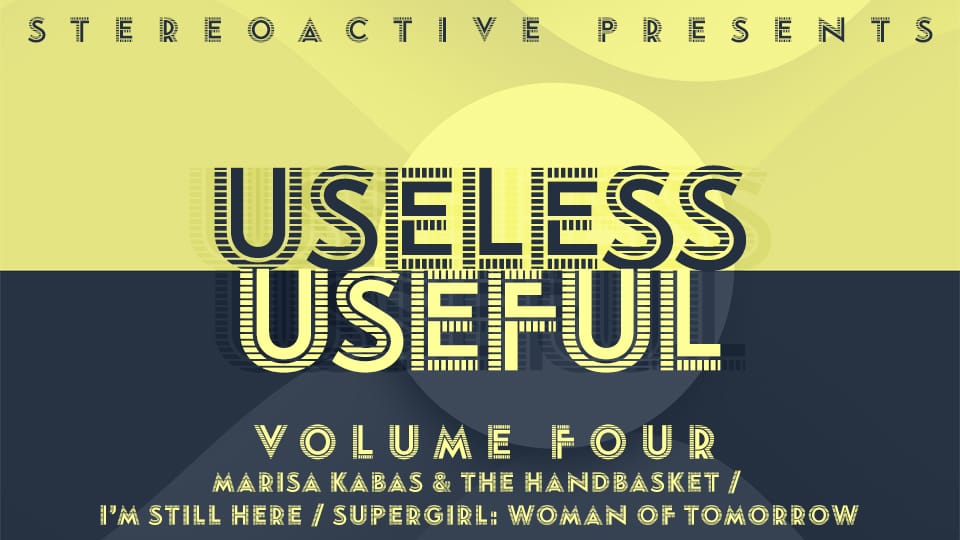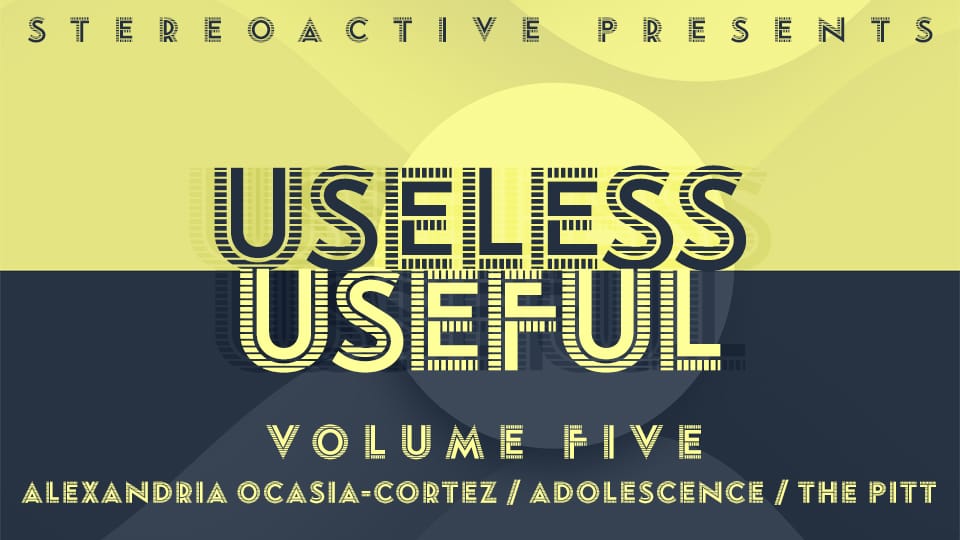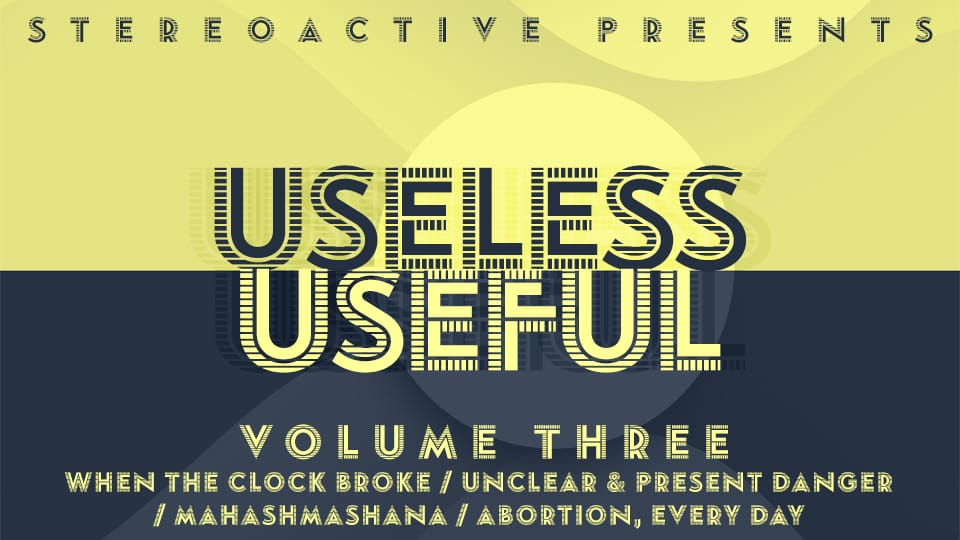Available on Goodpods, Apple Podcasts, Spotify, YouTube, and anywhere else you listen to podcasts.
Welcome to the fourth installment of USELESS/USEFUL, in which we discuss topics of interest, broken into two categories. USELESS covers topics that have to do with pop culture, music, film, etc. – and the term “useless” is used lovingly, hearkening back to the DIY Brooklyn venue Fort Useless and the community around that. USEFUL covers topics like relief efforts, charitable campaigns, social issues, and other things that we want to encourage you to consider supporting. And we’ll also share about projects going on at Stereoactive Media. Here are our topics for this episode…
USELESS ITEM ONE
I’m Still Here is the new film by Brazilian director Walter Salles. If you’re unsure of who Salles is or what the film is, here are a couple of things to know:
- Salles is a director who’s filmography stretches back nearly 4 decades and this is not the first time one of his feature films has broken through in some way to an American audience. He’s probably best known for his 1998 film, Central Station, as well as his 2004 adaptation of Che Guevera’s memoir, The Motorcycle Diaries, which starred Gael García Bernal as Guevera. Both films received international acclaim and won or were nominated for several awards – including at the Oscars.
- I’m Still Here has itself been nominated for three Oscars at the upcoming Academy Awards. It’s nomination for Best International Feature was not all that surprising. And after her win at the Golden Globes last month, star Fernanda Torres’ nomination for Best Actress was also not all that surprising. But the film’s nomination for Best Picture at the Oscars was pretty surprising. By the way, Torres is the daughter of Fernanda Montenegro, who herself was nominated for Best Actress at the Oscars in Salles’ Central Station 26 years ago.
Honestly, I wasn’t even sure if the movie would open here in Tallahassee, but it did and I was glad to not have to wait on it hitting streaming services before I could see it. It stars Torres as a Brazilian family woman in 1970, six years into the nation’s military dictatorship. She is married to a former congressman and raising 5 kids in what appears to be a near perfect life – as we see play out in a rather extended sequence that does a great job of setting up the family dynamics and making sure we know what’s at stake.
But it’s clear from the beginning that no matter how great their shared life may be, the world around them is becoming more overtly hostile and, eventually, Torres’ character (Eunice) as well as her husband and one of their eldest daughters are taken by members of the army for questioning about potential ties to left-leaning revolutionaries.
I’ll refrain from explaining the plot or premise more than that, but ultimately, for those of us living through the current Trump-Musk political takeover of the United States, the film serves as an unfortunately apt reminder that just because your life may be idyllic, that doesn't mean the destructive gears of an authoritarian regime aren't just waiting to start grinding in your direction, too. And no matter how aware you may be of their general state of looming around the edges of life, once they take an interest in you, they can come on quick and change everything forever.
USELESS ITEM TWO
I first became a fan of comic book writer Tom King’s work after reading his 12-issue Mister Miracle limited series sometime during the pandemic. At this point, I’ve re-read the series at least twice and I’ve also read his run on Omega Men and a lot of his work on Batman.
But what I’m recommending now is his 8-issue miniseries, Supergirl: Woman of Tomorrow, which I recently got around to reading and really enjoyed a lot. It’s a mix of sci-fi and fantasy that does a great job of really planting the character on her own two feet, separate from Superman. And the structure of it, all told in flashback by an old woman from another planet who traveled with Supergirl across the galaxy when she was young, does a great job of layering in a narrative distance that makes it all seem like the story of a legendary hero.
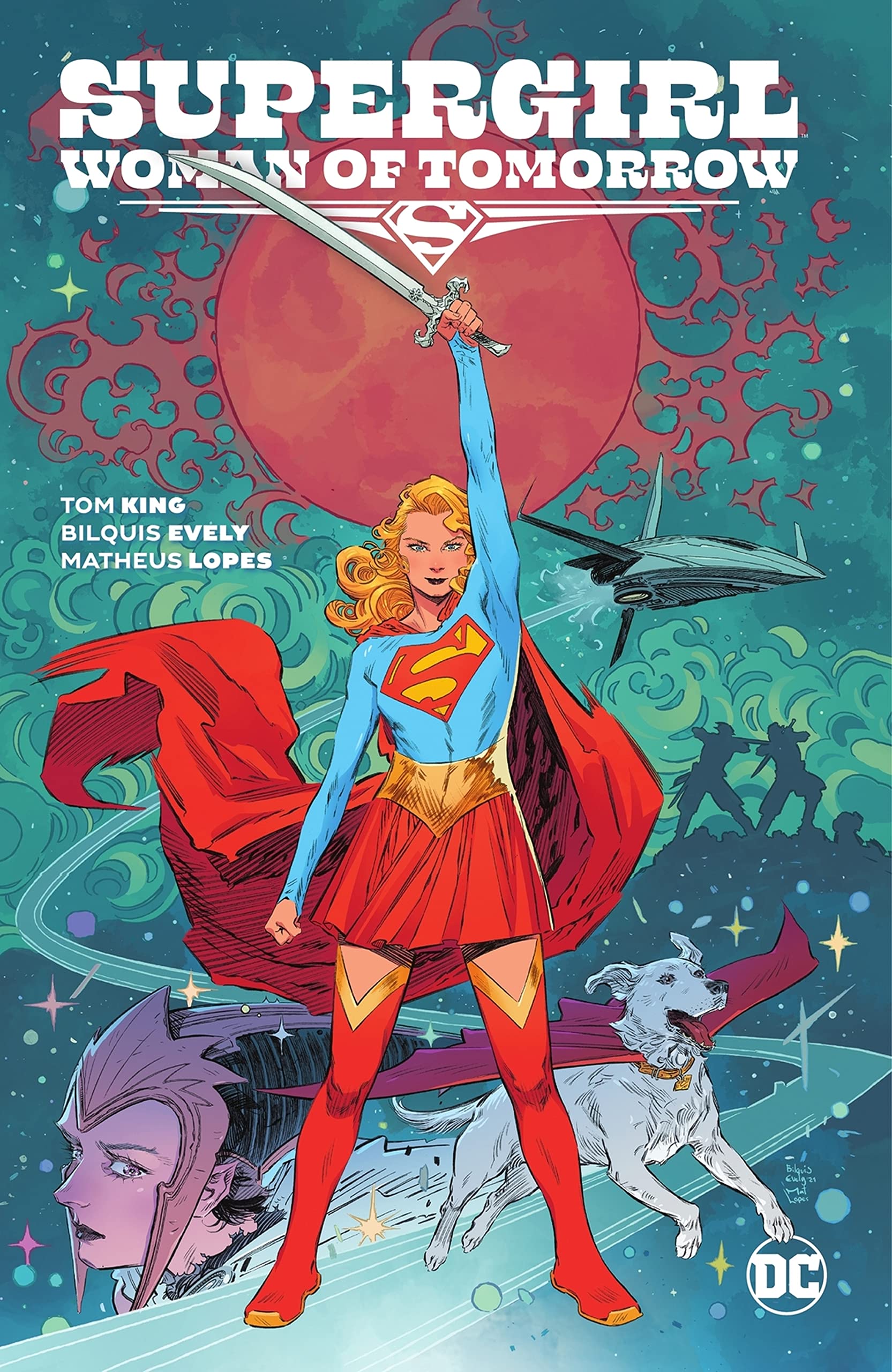
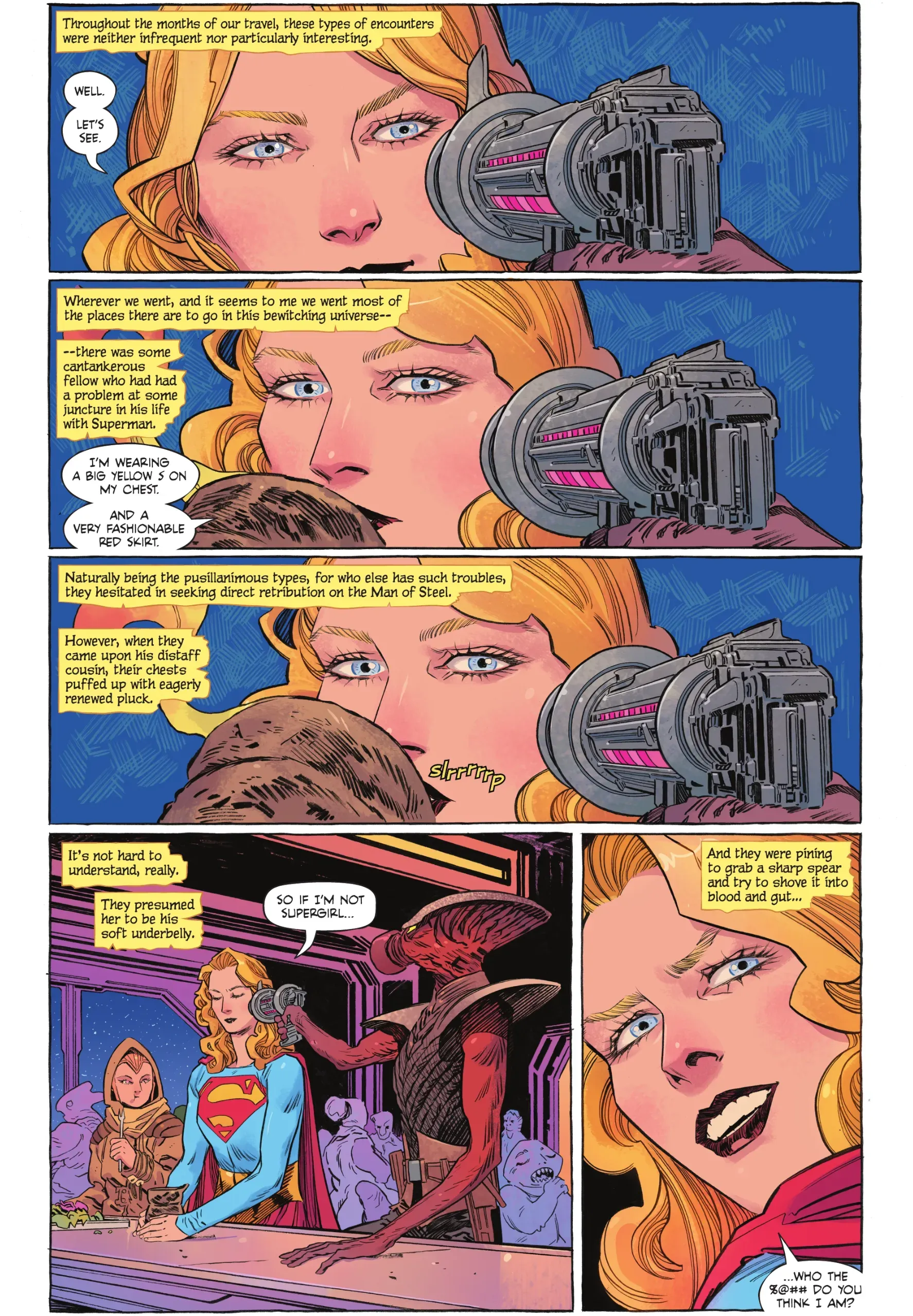
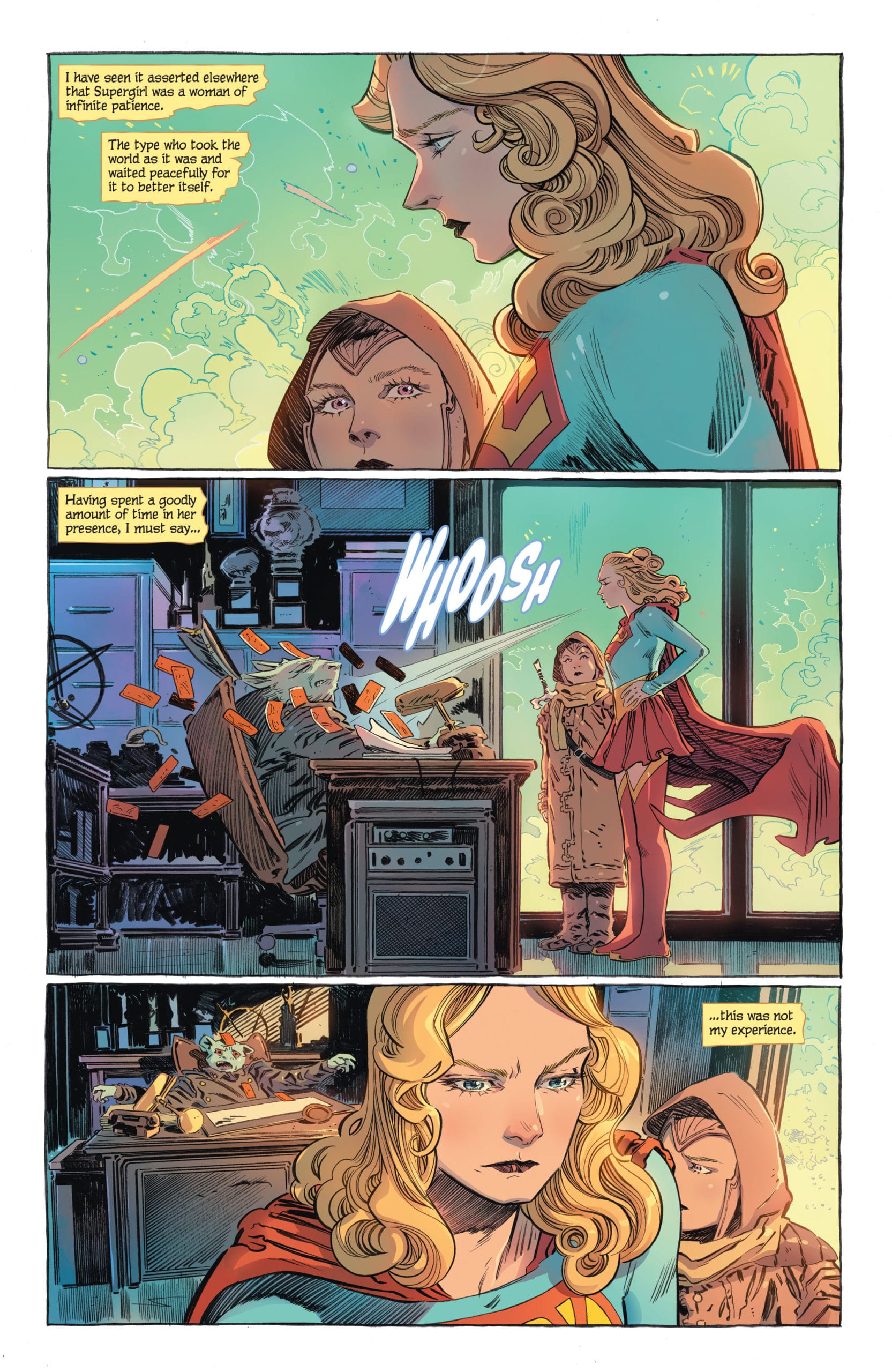
As good as the story was, though, I have to admit the thing that put the experience of reading it over the top had nothing to do with anything on the page, but instead had to do with sharing it with my three year old daughter, who I read much of it too. It’s the first time I’ve read a comic book story to her and I had no idea if she’d enjoy it or not, but she listened, looked at the pictures, and has started pretending to be Supergirl, calling our dog Krypto, and pretending she has a flying horse named Comet. She even asked me if Supergirl has a pet bear because she wanted to name my in-laws’ dog, who we jokingly refer to as “Slow Bear” after it, so I told her that she has a bear called Argo.
Also FYI, Supergirl: Woman of Tomorrow is being adapted into a movie by the new regime heading up the DC cinematic universe.
And now to our…
USEFUL ITEM
If you’ve been paying attention to anything happening in the United States in recent years, you very well may be frustrated with… so many things, really. But one thing that’s really been stressing me out even more lately than it already was, is how not up to the task the mainstream, corporate-owned media seems to be to really holding those in power to account or maintaining a real objectivity based on facts, rather than corporate – or other – interests. And when I say this, I don’t mean that all reporters working for the New York Times, the Washington Post, or any other institution of record are doing bad work. Lots are doing great work – most even. But if, say, your newspaper is owned by one of the richest people on the planet and he decides he wants the coverage there to go a certain way or avoid certain things, well, that’s a problem.
One thing I’ve found some solace in recently is the fact that there are truly independent journalists out there doing the work on their own of building a beat and developing sources so that we can really find out, in some cases, what’s going on, without it being filtered through the either real or perceived lens of an owner or publisher. In fact, in the early days of this still very new disaster of a second Trump administration, one of the most dramatic stories – and one we’re still seeing play out in some fashion – was broken by an independent journalist named Marisa Kabas. You should definitely follow her on Bluesky because that’s where she broke the news that the Trump White House, via the Office of Management and Budget had sent out a memo seemingly pausing all funding of agency grants, loans, and other financial assistance processed through the executive branch. And you should also subscribe to her newsletter, called The Handbasket, where she publishes her work. You can subscribe for free, but for those who can afford it, I really suggest becoming a paid member for only $8/month to help support the work she’s doing. Marisa, and independent journalists like her, are an asset that we’re all relying on right now, whether we know it or not, so please support her and people like her however you can.


STEREOACTIVE BULLETIN BOARD
We’ve got a few things to let you know about in Stereoactive World…
We recently released an episode of Stereoactive Presents featuring my conversation with author Mike Miley, about the work of David Lynch. Mike is the author of David Lynch's American Dreamscape: Music, Literature, Cinema, which was just released by Bloomsbury Academic.
The relaunch of the When We See Each Other podcast continues! Not only does the latest episode feature a great conversation between host Nikkiesha McLeod and Filipino-Canadian Hip Hop and R&B artist Kimmortal, but we also recently released the first episode of When We See Each Other’s Book Club, featuring a conversation about Akwaeke Emzi’s YA novel, Pet.
And we’re also back with a brand new season of Kind of a Lot with Matt Ruby. The first episode of 2025 is called “The one thing everyone on social media agrees on? Hating the New York Times.” And it features Matt’s thoughts on why he thinks we need to better appreciate the good journalism still done by the Times as well as his thoughts on the state of journalism more generally.
EPISODE CREDITS
- Produced and presented by Jeremiah Lee McVay
- Music by Hansdale Hsu and Maia Macdonald
For more information on this podcast, including where it's available, please visit the show's homepage.

